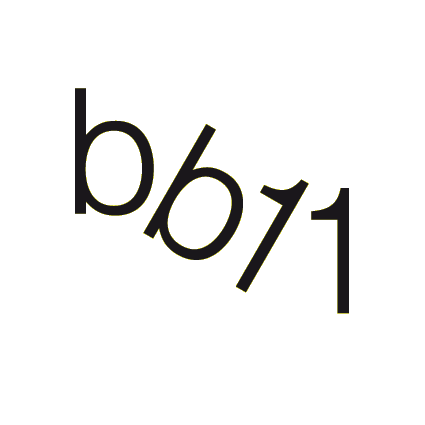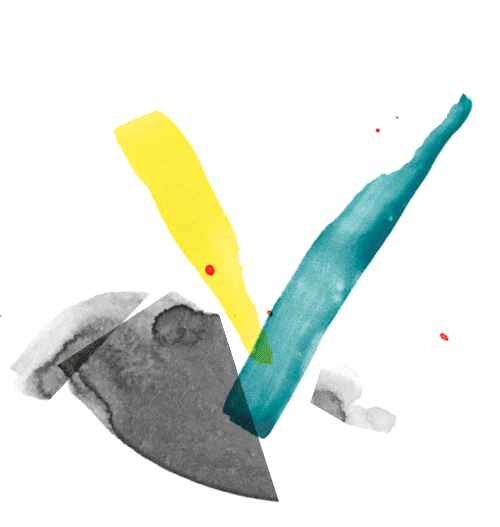

Sign up for our newsletters. You can change the settings or unsubscribe at any time.
Thank you for your subscription. We have sent you an e-mail with a confirmation link.


exp. 1
exp. 2
exp. 3

Young-jun Tak
Venue: KW Institute for Contemporary Art
Young-jun Tak
Born 1989 in Seoul, KR – lives and works in Berlin, DE
As one of the most ancient responses to fear, religion is again being ideologically instrumentalized to feed the populist demand for scapegoating and expedite political polarization. Young-jun Tak analyses the moral mechanizations of societies that are currently echoing each other throughout the world by targeting LGBTQI communities. In the artist’s home country of South Korea, Christian leaders and mega churches have risen to dominance in the fields of politics, economics, and journalism, despite the fact that the majority of the population is non-religious. Driven by a belief in “the blessed country” these religious groups direct their patriotic energy towards promoting anti-LGBTQI and anti-migration sentiment and decrying the country’s rapidly shrinking population. In a newly commissioned work developed shortly before the outbreak of the Covid-19 pandemic, Young-jun Tak draws on the way South Korean Christian fanatics try to block the annual Pride parades by throwing themselves on the ground and forming a human chain by interlocking arms.
Chained (2020) consists of ten life-sized statues of the crucifixion, fabricated in Italy, which are installed in a circle on the ground, their arms overlapping. A closer look reveals that the surfaces of the figures are collaged with anti-LGBTQI propaganda flyers promoting conversion therapies and courses, ephemera collected by Tak from churches and medical institutions in South Korea. Most of this material can also be found in the Korea Queer Archive.
During the Covid-19 pandemic, the country experienced two contagion cycles: one from the pseudo-Christian group known as the Shincheonji Church of Jesus; the other from gay clubs in Seoul. The religious group suddenly found themselves on the receiving end of the sort of hate speech that they themselves had used for years against the LGBTQI community blamed for the spread of HIV. During the second cycle, these attacks were again directed at the LGBTQI community.
Övül Ö. Durmusoglu
Maternidades subversivas
María Llopis
Monograph
#fight4rojava
Graffiti
Memorial to the Sinti and Roma Victims of National Socialism
Dani Karavan
Memorial
Feminist Health Care Research Group
Web archive
Flávio de Carvalho: Fazenda Capuava
Archive of Lisette Lagnado
Photographs
Glossary of Common Knowledge
L’Internationale Online
Glossary
By using this website you agree to the use of cookies in accordance with our data privacy policy.

Young-jun Tak
Venue: KW Institute for Contemporary Art
Young-jun Tak
Born 1989 in Seoul, KR – lives and works in Berlin, DE
As one of the most ancient responses to fear, religion is again being ideologically instrumentalized to feed the populist demand for scapegoating and expedite political polarization. Young-jun Tak analyses the moral mechanizations of societies that are currently echoing each other throughout the world by targeting LGBTQI communities. In the artist’s home country of South Korea, Christian leaders and mega churches have risen to dominance in the fields of politics, economics, and journalism, despite the fact that the majority of the population is non-religious. Driven by a belief in “the blessed country” these religious groups direct their patriotic energy towards promoting anti-LGBTQI and anti-migration sentiment and decrying the country’s rapidly shrinking population. In a newly commissioned work developed shortly before the outbreak of the Covid-19 pandemic, Young-jun Tak draws on the way South Korean Christian fanatics try to block the annual Pride parades by throwing themselves on the ground and forming a human chain by interlocking arms.
Chained (2020) consists of ten life-sized statues of the crucifixion, fabricated in Italy, which are installed in a circle on the ground, their arms overlapping. A closer look reveals that the surfaces of the figures are collaged with anti-LGBTQI propaganda flyers promoting conversion therapies and courses, ephemera collected by Tak from churches and medical institutions in South Korea. Most of this material can also be found in the Korea Queer Archive.
During the Covid-19 pandemic, the country experienced two contagion cycles: one from the pseudo-Christian group known as the Shincheonji Church of Jesus; the other from gay clubs in Seoul. The religious group suddenly found themselves on the receiving end of the sort of hate speech that they themselves had used for years against the LGBTQI community blamed for the spread of HIV. During the second cycle, these attacks were again directed at the LGBTQI community.
Övül Ö. Durmusoglu
Fragments of the Artist’s Diary, Berlin 11.2019–1.2020
Virginia de Medeiros
Diary
Teatro da Vertigem
Monograph
Solidarity and Storytelling. Rumors against Enclosure
María Berríos
Essay
New Look
Flávio de Carvalho
Performance
O Bailado do Deus Morto
Flávio de Carvalho
Play
Undocumented Rumours and Disappearing Acts from Chile
María Berríos
Essay
By using this website you agree to the use of cookies in accordance with our data privacy policy.

Young-jun Tak
Venue: KW Institute for Contemporary Art
Young-jun Tak
Born 1989 in Seoul, KR – lives and works in Berlin, DE
As one of the most ancient responses to fear, religion is again being ideologically instrumentalized to feed the populist demand for scapegoating and expedite political polarization. Young-jun Tak analyses the moral mechanizations of societies that are currently echoing each other throughout the world by targeting LGBTQI communities. In the artist’s home country of South Korea, Christian leaders and mega churches have risen to dominance in the fields of politics, economics, and journalism, despite the fact that the majority of the population is non-religious. Driven by a belief in “the blessed country” these religious groups direct their patriotic energy towards promoting anti-LGBTQI and anti-migration sentiment and decrying the country’s rapidly shrinking population. In a newly commissioned work developed shortly before the outbreak of the Covid-19 pandemic, Young-jun Tak draws on the way South Korean Christian fanatics try to block the annual Pride parades by throwing themselves on the ground and forming a human chain by interlocking arms.
Chained (2020) consists of ten life-sized statues of the crucifixion, fabricated in Italy, which are installed in a circle on the ground, their arms overlapping. A closer look reveals that the surfaces of the figures are collaged with anti-LGBTQI propaganda flyers promoting conversion therapies and courses, ephemera collected by Tak from churches and medical institutions in South Korea. Most of this material can also be found in the Korea Queer Archive.
During the Covid-19 pandemic, the country experienced two contagion cycles: one from the pseudo-Christian group known as the Shincheonji Church of Jesus; the other from gay clubs in Seoul. The religious group suddenly found themselves on the receiving end of the sort of hate speech that they themselves had used for years against the LGBTQI community blamed for the spread of HIV. During the second cycle, these attacks were again directed at the LGBTQI community.
Övül Ö. Durmusoglu
New Look
Flávio de Carvalho
Performance
Umbilical Cord Amulet
McCord Museum
Object
El primer nueva corónica y buen gobierno
Felipe Guamán Poma de Ayala
Chronicle
Struggle as Culture: The Museum of Solidarity, 1971–73
María Berríos
Essay
O Bailado do Deus Morto
Flávio de Carvalho
Play
#fight4rojava
Graffiti
By using this website you agree to the use of cookies in accordance with our data privacy policy.

Young-jun Tak
Venue: KW Institute for Contemporary Art
Young-jun Tak
Born 1989 in Seoul, KR – lives and works in Berlin, DE
As one of the most ancient responses to fear, religion is again being ideologically instrumentalized to feed the populist demand for scapegoating and expedite political polarization. Young-jun Tak analyses the moral mechanizations of societies that are currently echoing each other throughout the world by targeting LGBTQI communities. In the artist’s home country of South Korea, Christian leaders and mega churches have risen to dominance in the fields of politics, economics, and journalism, despite the fact that the majority of the population is non-religious. Driven by a belief in “the blessed country” these religious groups direct their patriotic energy towards promoting anti-LGBTQI and anti-migration sentiment and decrying the country’s rapidly shrinking population. In a newly commissioned work developed shortly before the outbreak of the Covid-19 pandemic, Young-jun Tak draws on the way South Korean Christian fanatics try to block the annual Pride parades by throwing themselves on the ground and forming a human chain by interlocking arms.
Chained (2020) consists of ten life-sized statues of the crucifixion, fabricated in Italy, which are installed in a circle on the ground, their arms overlapping. A closer look reveals that the surfaces of the figures are collaged with anti-LGBTQI propaganda flyers promoting conversion therapies and courses, ephemera collected by Tak from churches and medical institutions in South Korea. Most of this material can also be found in the Korea Queer Archive.
During the Covid-19 pandemic, the country experienced two contagion cycles: one from the pseudo-Christian group known as the Shincheonji Church of Jesus; the other from gay clubs in Seoul. The religious group suddenly found themselves on the receiving end of the sort of hate speech that they themselves had used for years against the LGBTQI community blamed for the spread of HIV. During the second cycle, these attacks were again directed at the LGBTQI community.
Övül Ö. Durmusoglu
COVID-19 VIDEOS
Carlos Motta
Video
Memorial to the Sinti and Roma Victims of National Socialism
Dani Karavan
Memorial
St Sara Kali George
Delaine Le Bas
Soundscape
#fight4rojava
Graffiti
Hatred Among Us
Lisette Lagnado
Essay
Género y colonialidad en busca de claves de lectura y de un vocabulario estratégico descolonial
Rita Segato
Essay
By using this website you agree to the use of cookies in accordance with our data privacy policy.
By using this website you agree to the use of cookies in accordance with our data privacy policy.




